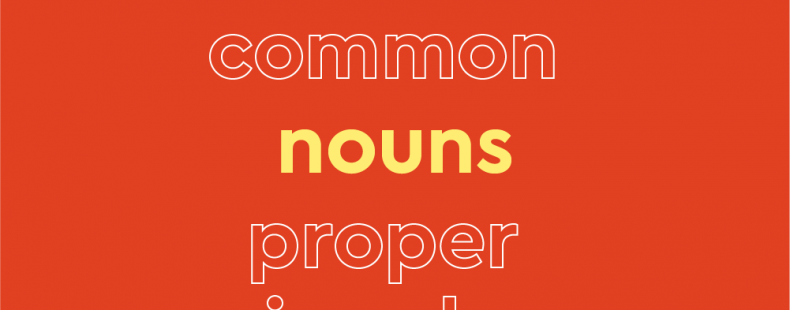

Nouns are an all-star team of words and always have a player ready to step up to the plate, no matter the challenge. Common nouns, proper nouns, abstract nouns, and concrete nouns are our go-to nouns but there are many types of nouns ready to get in the game. To learn the difference between all these nouns, use this guide to link to in-depth articles about each type of noun.
A noun is a word that refers to a person, place, or thing. The category of “things” may sound super vague, but in this case it means inanimate objects, abstract concepts, and activities. Phrases and other parts of speech can also behave like nouns and can be the subject in a sentence, as in Jogging is a fun exercise. Here, the verb jogging acts like a noun and is the subject of the sentence.
Common nouns are words that refer to undefined or generic people, places, or things. For example, the country is a common noun that refers to a generic place while the word Canada is not a common noun because it refers to a specific place. Common nouns are only capitalized when they begin sentences or are used in the names or titles of something, as in Grand Canyon or Iron Man.
Proper nouns help distinguish a specific person, place, or thing. These words should be capitalized. The names and titles of things are always proper nouns, such as the brand name Starbucks and the personal name Jenny.
Singular nouns are nouns that refer to only one person, place or thing. For example, a cat is one animal and a banana is one fruit.
A plural noun refers to more than one of something. Many singular nouns just need an S added at the end to make them plural (e.g., bee becomes bees). For some nouns that already end with an S, you may need to add -es to the end to make their plural forms (e.g., classes and buses). Some singular nouns also change spelling when made plural (e.g. countries and babies).
Not all nouns follow this pattern. Those that become plural in other ways are called irregular plural nouns. Some examples are man and men, wolf and wolves, foot and feet, and sheep and … sheep.
A concrete noun is something that can be perceived through the five senses. If you can see, hear, touch, taste, or smell something, it uses a concrete noun.
Abstract nouns are intangible ideas that can’t be perceived with the five senses, such as social concepts, political theories, and character traits. For example, the abstract noun anger refers to an emotion and the abstract noun courage refers to a quality a person has.
A collective noun is a noun that functions as a singular noun while referring to a group of people or things. A collective noun refers to a group that functions as one unit or performs the same action at the same time. For example: the team plays in the main gym.